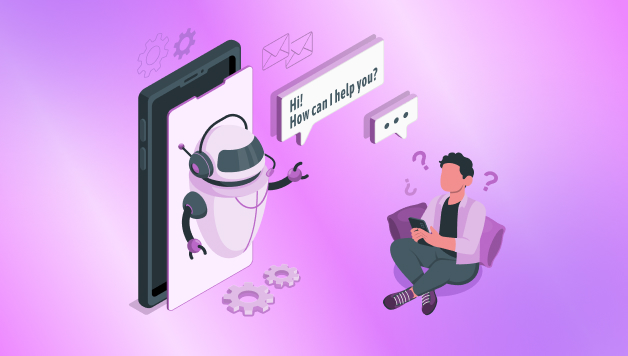How Do You Ask AI a Question? A Step-by-Step Guide for Beginners

Artificial Intelligence has rapidly become a helpful everyday tool, whether you’re using it for writing, research, decision-making, or brainstorming ideas. But if you’re just starting, you might wonder: How do you ask AI a question in a way that gets you a useful and accurate answer?
Knowing how to interact with AI effectively can save time, reduce frustration, and even open up new opportunities. Whether you’re exploring tools like ChatGPT, Bard, Claude, or other AI platforms, asking the right questions is the key to getting the best results.
In this guide, we’ll walk you through exactly how to do that — from understanding how AI works to examples of the best questions to ask AI. If you’re new to the world of artificial intelligence, this is the starting point you need.
Understanding How AI Interprets Questions
Before diving into tips and steps, it’s helpful to know what’s going on behind the scenes. AI, especially language models like ChatGPT, doesn’t “understand” questions like a human would. Instead, it analyzes the structure and context of your words to generate a response based on patterns it has learned from large datasets.
This means the clearer and more specific your question is, the better the AI can respond.
That brings us to a fundamental skill for AI users: How To Ask AI a Question effectively.
Step-by-Step: How Do You Ask AI a Question?
1. Know Your Goal
Before typing anything, decide what you want from the AI. Are you seeking factual information, ideas, summaries, or a creative output like a poem or story?
- If you’re doing research: Ask for definitions, explanations, or summaries.
- If you’re brainstorming: Request ideas, suggestions, or strategies.
- If you’re writing content: Ask for outlines, drafts, or formatting tips.
Having a clear goal helps you craft a better question.
2. Be Specific and Clear
Avoid vague phrases like “tell me something interesting” unless you’re experimenting for fun. A better version would be:
“Can you share five fun facts about space that would interest teenagers?”
The more detail you provide — about the topic, format, tone, or audience — the better the output will be. This is especially important for users exploring ChatGPT Development Services or trying to customize outputs for their business.
3. Use Natural Language
You don’t need to use technical jargon or complicated language. AI works well with plain English. Instead of saying:
“Provide insights regarding contemporary geopolitical dynamics,”
try:
“What are the major political conflicts happening in 2025?”
Natural, conversational input leads to smoother, more human-like replies.
4. Ask One Thing at a Time
Complex or compound questions often confuse the AI or lead to incomplete answers. Break your query into steps or separate prompts.
Bad: “What’s the history of the Eiffel Tower and who designed it and what is it used for now?”
Better:
- “Who designed the Eiffel Tower?”
- “What is the history of the Eiffel Tower?”
- “What is the Eiffel Tower used for today?”
5. Use Examples or Context
Want the AI to generate a certain kind of result? Give an example or clarify your expectations.
Example: “Write a blog intro like this: ‘Are you tired of wasting time on low-impact marketing?’ Now create one about AI tools for small businesses.”
This kind of context trains AI to mirror your tone, format, and intent.
Best Questions to Ask AI (As a Beginner)
Asking AI the right kind of question can be powerful — especially if you’re unsure how it can help. Here are some beginner-friendly examples of the best questions to ask AI:
- “Can you summarize this news article in under 100 words?”
- “What are 5 business name ideas for a health food brand?”
- “How can I write a professional email to request a raise?”
- “Give me blog ideas for a pet care website.”
- “Help me understand how blockchain works in simple terms.”
All of these questions are focused, clear, and goal-oriented. They help the AI generate practical and usable responses.
Advanced Tips for Better AI Interaction
Once you’re confident with basic questioning, here are some advanced methods to get even more out of your AI assistant.
Refine and Iterate
If the first answer isn’t what you expected, try refining the question. Add more context, rephrase it, or ask follow-up questions. Think of it as a back-and-forth conversation.
Set a Role or Persona
You can guide AI by asking it to “act” a certain way. For example:
- “You are a marketing expert. What’s the best strategy to grow a new e-commerce store?”
- “Act like a resume coach. How can I improve this section of my CV?”
This is especially useful for businesses or those working with a Custom AI Development Company where AI can be trained or prompted in a specialized tone or industry context.
Use AI for Learning, Not Just Answers
AI can help you learn step-by-step. Ask things like:
- “Can you teach me how to write an elevator pitch?”
- “Explain the basics of Python programming for beginners.”
This turns AI into a tutor or coach rather than just a content generator.
How Do You Ask AI a Question – Common Mistakes to Avoid
Even though AI is advanced, users often hit dead ends by making a few simple mistakes:
- Too Vague: “Write something about marketing.”
(This lacks detail and focus.) - Overloaded: “Tell me about SEO, digital marketing, PPC, and social media all in one paragraph.”
(Break it into smaller parts.) - No Direction: “Tell me a joke.”
(Fine for fun, but not helpful for work-related tasks.)
A good rule of thumb: if you wouldn’t ask a human the question in that way, don’t ask AI that way either.
Final Thoughts
Getting great results from AI doesn’t require technical skills — it’s all about communication. Whether you’re a student, a professional, or a content creator, learning how to ask AI a question effectively will make your AI usage far more productive.
From asking it to help with writing projects to using it as a business assistant or tutor, your ability to clearly state what you want determines what the AI gives back. Think of AI as a smart tool — the more precise your input, the better the outcome.
And as AI continues to evolve, asking the best questions to ask AI will be a vital skill for staying ahead in personal productivity, education, and even enterprise solutions like ChatGPT Development Services.
Read more: AI Developer for Hire: Cost, Skills, and Where to Look




